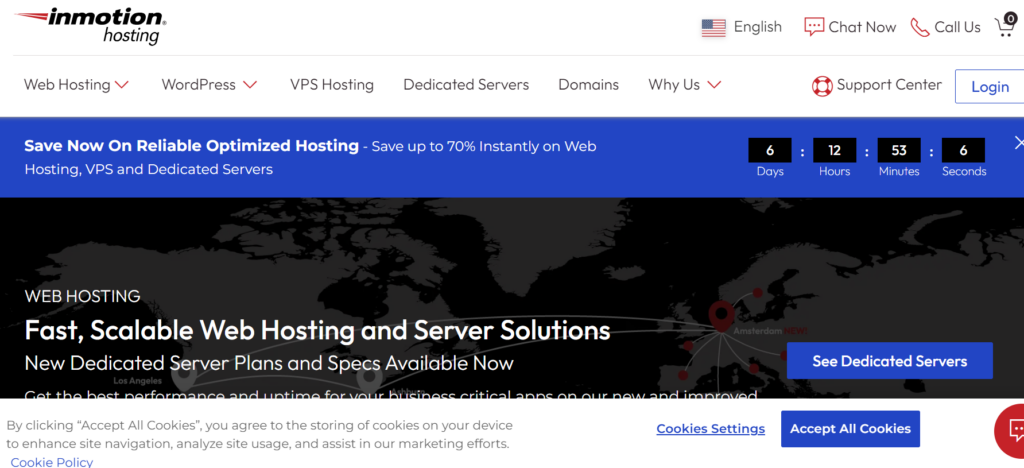
In the fast-paced digital world, every second counts. Imagine your website is down just when a potential customer tries to access it. Frustrating, right? Uptime refers to the amount of time your website remains accessible and operational. It’s not just a technical term; it’s a vital component that can make or break your online presence.
A high uptime percentage means reliability and trustworthiness for users. Conversely, frequent downtimes can lead to lost revenue and damaged credibility. Understanding uptime is crucial for anyone managing a website—whether you’re running an e-commerce store or maintaining a personal blog. But what influences this all-important metric? And how do you ensure that your site stays up and running smoothly? Let’s dive into the intricacies of web hosting services and discover how they affect your site’s performance in ways you might not have considered.
What is Uptime and Why is it Important?
Uptime is the measure of time your website is operational and accessible to users. It’s typically expressed as a percentage, highlighting the reliability of your web hosting service.
Why does it matter? For businesses, every minute of downtime can equate to lost sales and unhappy customers. If visitors encounter a broken link or an error page, they’re likely to leave without returning.
Search engines also factor uptime into their rankings. A website that’s frequently down may struggle to maintain visibility in search results, affecting organic traffic flow.
In today’s competitive online landscape, ensuring high uptime isn’t just beneficial; it’s essential for maintaining trust with your audience. When users know they can rely on you at any time, they’re more inclined to engage with your content or make purchases.
Factors That Affect Uptime
Uptime is influenced by various factors that can make or break your website’s performance. Server reliability stands at the forefront. If the servers experience frequent failures, your site will face downtime, affecting user access.
Network connectivity also plays a crucial role. A slow or unstable internet connection can lead to delays and disruptions for visitors trying to reach your site.
Another important aspect is the hosting infrastructure itself. Shared hosting environments often suffer from resource limitations as multiple sites vie for bandwidth and processing power. This competition can result in slower load times and increased downtime.
Regular maintenance is essential too. Hosting providers must perform updates and repairs without causing interruptions to their clients’ websites.
Unexpected traffic spikes can overwhelm servers not equipped to handle high volumes of users simultaneously, leading to outages when they are most critical.
Different Types of Web Hosting Services

When it comes to web hosting, you have several options tailored to different needs. Shared hosting is popular for beginners. It’s cost-effective but means sharing server resources with other sites.
For those needing more power, VPS (Virtual Private Server) hosting offers dedicated resources within a shared environment. This setup provides better performance and flexibility without the high costs of dedicated servers.
Dedicated hosting takes things up a notch by giving you an entire server to yourself. It’s ideal for larger businesses or websites with significant traffic demands.
Cloud hosting has gained traction too, allowing your website to utilize multiple servers simultaneously. This enhances reliability and scalability, catering perfectly to fluctuating traffic levels.
Managed WordPress hosting focuses specifically on WordPress sites, ensuring optimal speed and security through expert management and support tailored just for that platform. Each option serves distinct purposes based on your specific requirements and budget constraints.
How to Choose a Reliable Web Hosting Provider
Choosing a reliable web hosting provider is crucial for your website’s success. Start by assessing their uptime guarantee. Look for providers that promise at least 99.9% uptime to minimize downtime.
Next, consider the customer support options available. A responsive support team can make a significant difference when issues arise. Check if they offer 24/7 assistance via multiple channels like live chat, phone, and email.
Another important factor is scalability. As your website grows, so should your hosting plan. Opt for a provider that offers flexible plans to accommodate increased traffic or resource needs.
Read reviews from current users to gauge satisfaction levels. Real experiences provide insight into reliability and performance that marketing materials often overlook. Your choice of web host will play an essential role in how effectively you reach your audience online.
Our Recommendation: Inmotion Hosting Website

When it comes to choosing a web hosting provider, Inmotion Hosting stands out for several reasons. Their commitment to high uptime guarantees ensures that your website remains accessible when it matters most. With a focus on performance, they offer robust server technology that optimizes speed and reliability.
Inmotion Hosting provides various plans tailored for different business needs. Whether you’re running a small blog or an extensive e-commerce site, there’s an option suitable for you. Their customer support is available 24/7, ensuring assistance is just a call away.
Security features are also top-notch with Inmotion Hosting. They implement regular backups and advanced security protocols to protect your data from potential threats.
If you’re looking for reliable uptime combined with excellent service and value, consider exploring what Inmotion Hosting has to offer. Your website deserves the best foundation possible, and this provider aims to deliver just that.










